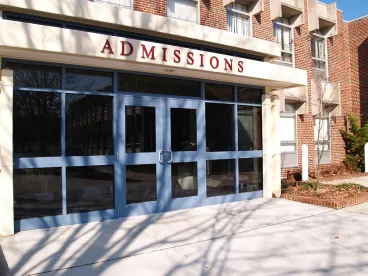The United States Supreme Court is currently considering two cases concerning whether race-conscious admissions programs are permissible under federal law. While these cases are limited to the relatively narrow universe of college admissions, the Court’s decision may be instructive to private employers and will likely have implications beyond the classroom.
In the two cases before the Court, Students for Fair Admissions v. President of Harvard, and Students for Fair Admissions v. University of North Carolina, the Justices are considering whether race can be used as a factor in the college admissions process. The Harvard case alleges the private university has discriminated against Asian Americans in violation of Title VI of the Civil Rights Act of 1964 and the Equal Protection Clause of the 14th Amendment. The case involving UNC-Chapel Hill (a public university) includes similar claims but adds white students as plaintiffs as well. Even though the Court “decoupled” the cases, it may assess the public vs. private distinction in a broader context. The Court held oral arguments on October 31, 2022.
Much is at stake. Many colleges view race-based admissions (quasi affirmative action plans) as a step towards correcting the institutional racial imbalances in higher education that have come as a result of years of inequality in the education system. Elizabeth B. Prelogar, the U.S. Solicitor General, argued in support of the universities in both cases. The Solicitor General argued that diversity in college has longer range benefits in the military, medical field, scientific community, and corporations. She also argued that race is only used as a moderate “plus factor” in the admissions process, which is in line with current Court precedent. In challenging the programs, the plaintiffs argued that the Supreme Court has rejected racial classifications in areas such as jury selection, marriage, and elementary education, and the same logic should apply to institutions of higher education. Perhaps telling, Chief Justice Roberts inquired whether there are race-neutral means of achieving diversity.
The Court is not expected to issue its decision for a few more months. However, employers may want to begin preparing now for how the outcome of this litigation could potentially affect corporate hiring and workplace diversity initiatives.
Affirmative Action in the Workplace
Workplace affirmative action plans are typically limited to federal contractors, or when ordered by courts to remedy a documented history of systemic discrimination. Similar to the race-conscious admissions programs at issue in the Harvard/UNC cases, however, many private employers seek to increase diversity in the workforce. These employers’ efforts are sometimes the subject of reverse-discrimination cases under Title VII. For example, in Ricci v. DeStefano 557 U.S. 557 (2009), the Supreme Court held that the City of New Haven violated Title VII by discarding the results of an exam that unintentionally prevented the promotion of minority candidates. And, in Duvall v. Novant Health, Inc., Civil Action No. 3:19-cv-00624 (W.D.N.C. Oct. 26, 2021), a white, male plaintiff won a $10 million punitive damage award after persuading a jury that his race and sex were motivating factors in his termination as his employer attempted to diversify the workforce.
A Ripple Effect: Talent Pipelines and Corporate Diversity Initiatives
If the Court determines race is an impermissible factor in college admissions, the impact could reverberate beyond federal contractors and court-ordered affirmative action plans. If the Court decides that race-conscious admissions programs are no longer permissible under Title VI and the Equal Protection Clause, litigants will likely attempt to extend the decision(s) to Title VII and private employers. Race-conscious hiring would likely see more reverse discrimination-type claims. So too could alternative programs that universities and employers might implement to achieve diversity in light of the decision, especially if the Court finds that race may not be considered in any form when evaluating candidates.
Another, more indirect, consequence to employers would be that if universities cannot consider race, the diversity of their student bodies may decrease. Employers would then be looking at a much more homogenous group of applicants, and companies that have struggled to recruit and retain diverse candidates may face additional challenges. Anticipating this fallout, many companies submitted briefs urging the Court to uphold affirmative action plans in higher education. For these employers, affirmative action is important to creating a diverse workforce.
Diversity, equity, and inclusion initiatives may feel the impact of the Court’s decision as well. When ruling on these cases, the Court may find that race cannot be considered at all in admissions, even as a moderate plus factor. If the Court issues a broad ruling, it may pave the way for future litigants to argue that diversity initiatives may not be legally pursued, whether in universities or the workplace. If this were to happen, companies that have publicly embraced the value of a diverse workforce would need to rethink how they talk about and implement this value. In light of the Harvard and UNC cases pending before the Supreme Court, all employers who utilize affirmative action plans and have DEI initiatives should consult with legal counsel to ensure legal compliance and best practices going forward.
Hope Harriman also contributed to this article.



 />i
/>i
